Tony Warriner and Revolution Software might be familiar names to you if you enjoyed the point-and-click video games Broken Sword, Beneath a Steel Sky, Lure of the Temptress, or adventure game In Cold Blood, but there’s a lot more to both Revolution Software and Tony Warriner than just that. As well as being a game developer, Tony Warriner is also one of the founders of Revolution Software. Warriner has been living the indie dev lifestyle since the mid ‘80s, and whilst Warriner might have believed it would be the “rock star life for introverts”, the reality is far from it, despite having seen success over the years.
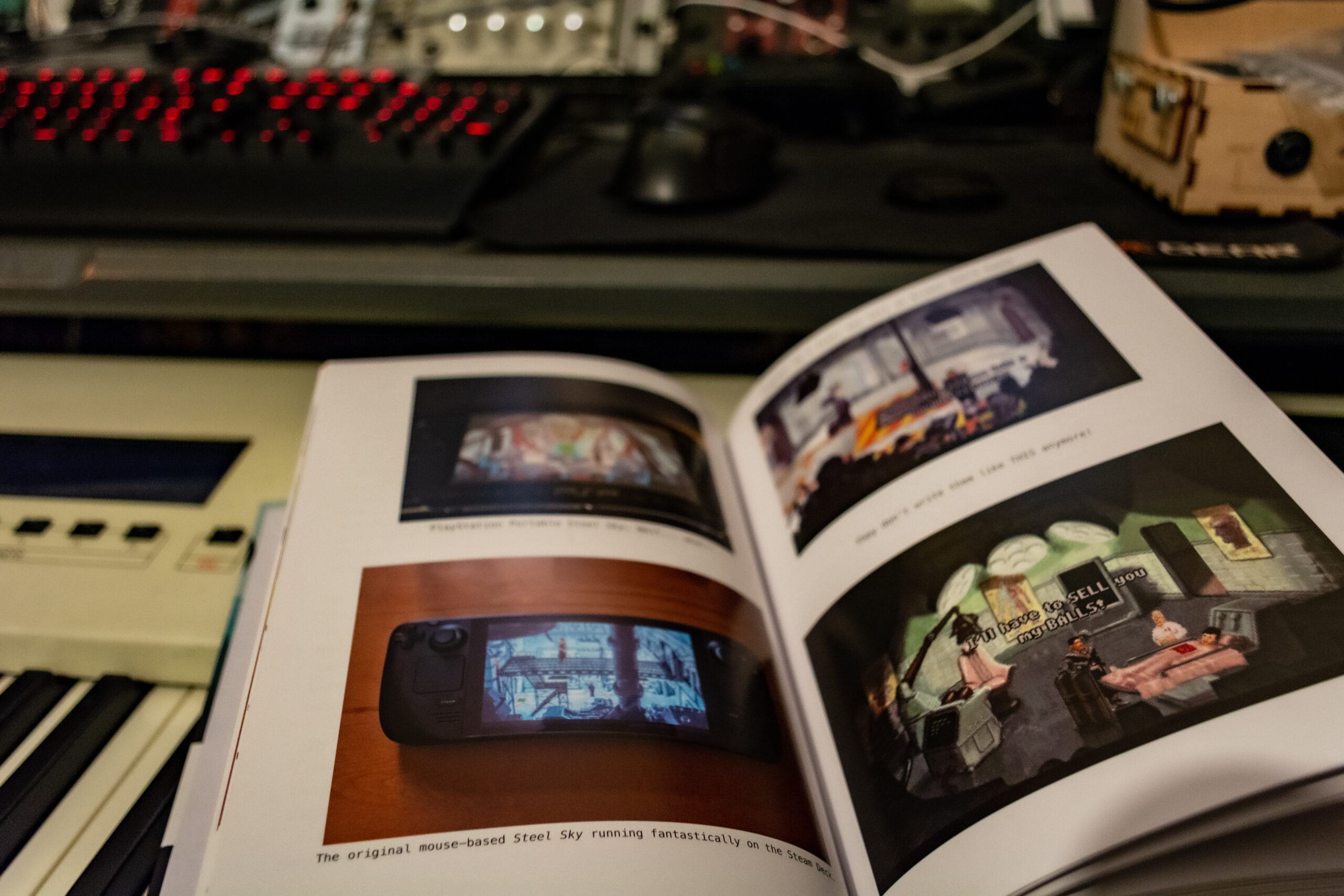
Whilst the 2022 Kickstarter campaign for the Revolution: The Quest for Game Development Greatness book came and went without me hearing about the book itself or the campaign, I stumbled upon Tony’s Twitter/X profile a few weeks ago and saw a tweet mentioning that he had written a book on Revolution Software as a video game developer. Needless to say, I couldn’t resist, so promptly ordered myself a hardback edition of the book (mine is #697 of 1000), which features the signatures of Tony Warriner and his editor, Martin Mulrooney.
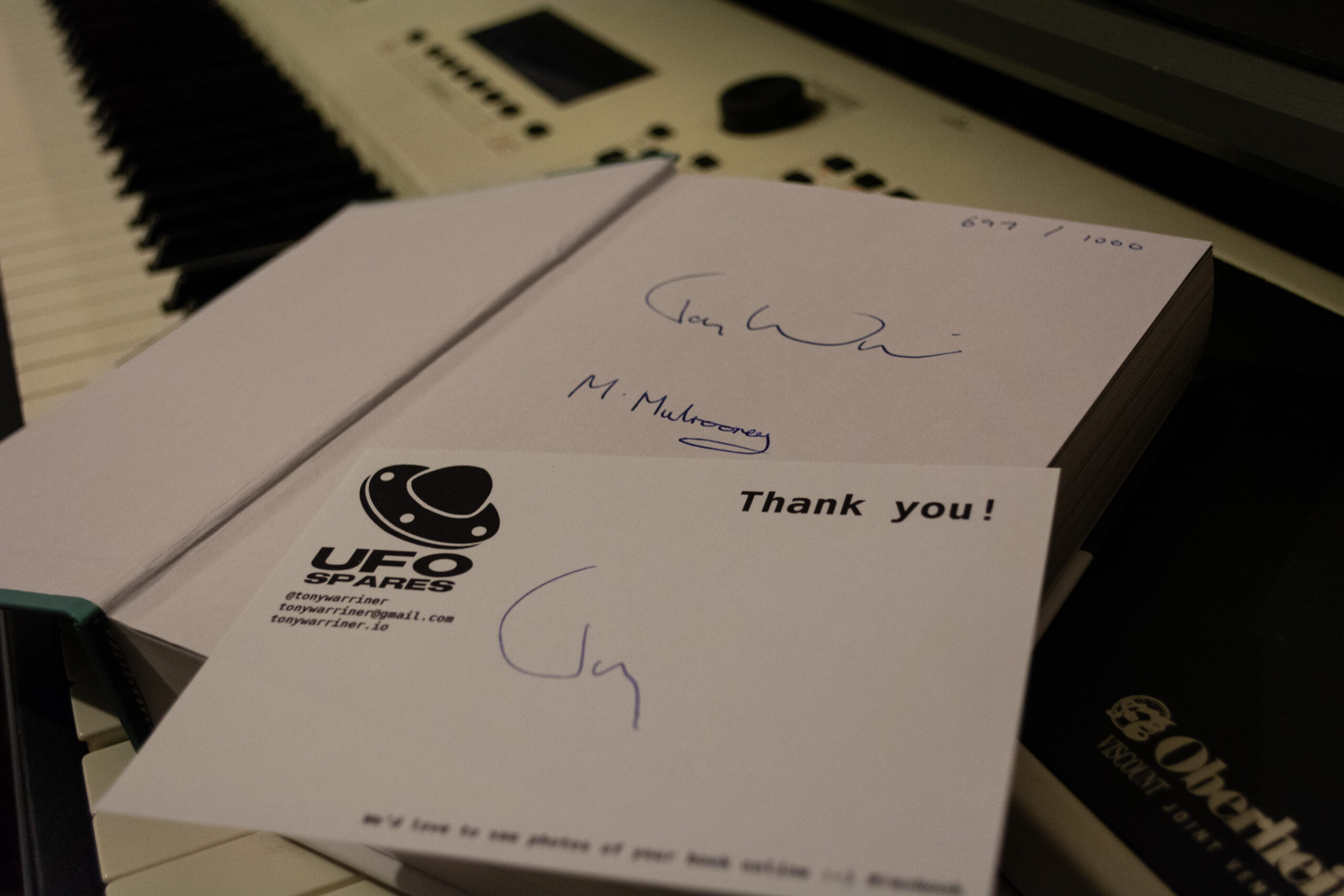
I honestly didn’t know what to expect going into Revolution. I thought it would read mostly like a by-the-numbers history of Revolution Software, without much focus on the people or zeitgeist, but instead it ended up completely different, and is full of information you won’t read about anywhere online. Revolution could be somewhat described as an autobiography by Tony Warriner and his editor, Mulrooney, who also writes his own foreword.
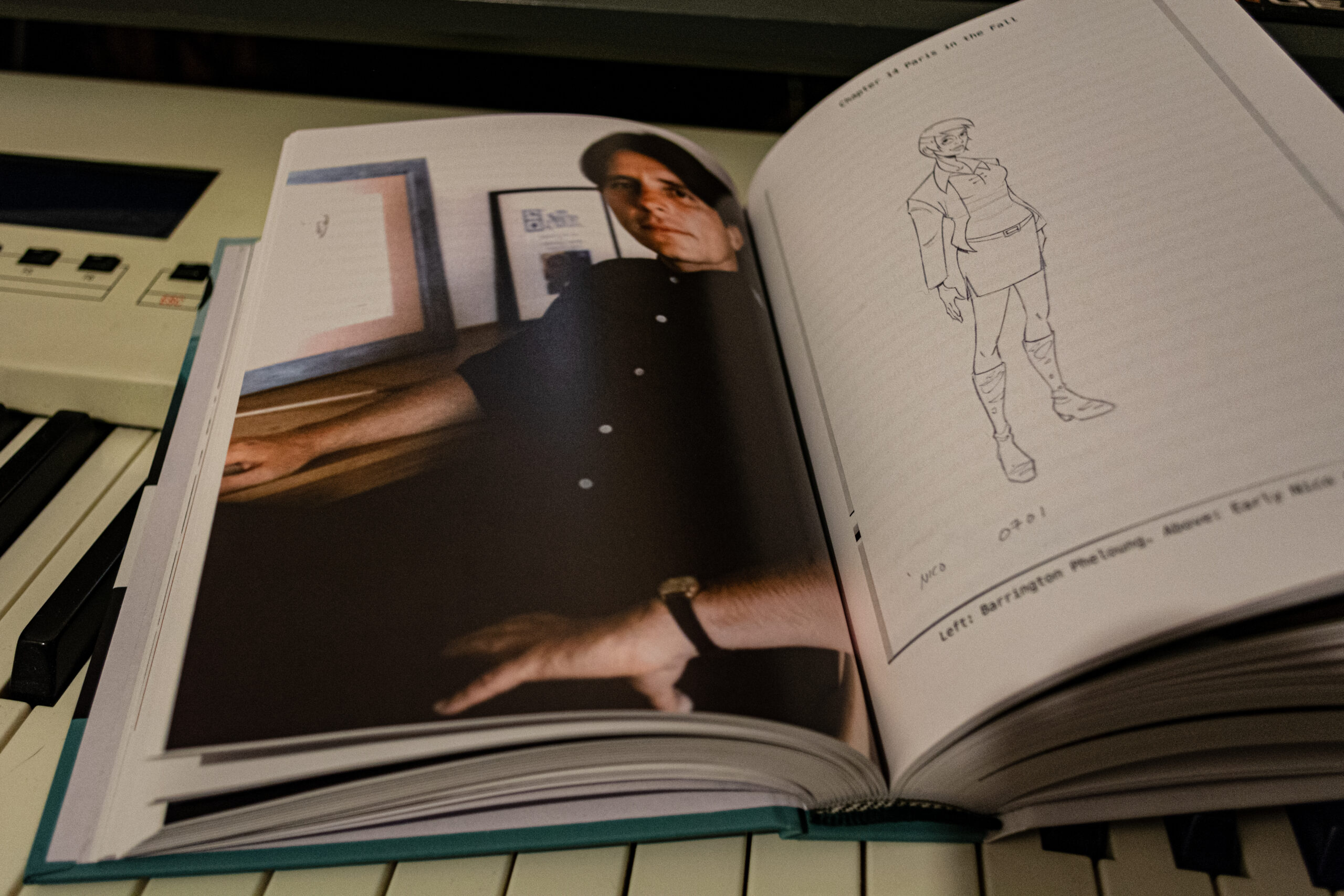
Broken Sword inspired me in many ways, particularly the score by the late Barrington Pheloung, causing me to take an interest in game audio beyond the realms of chiptune. Regarding my own background as a game dev, and composer for indie games like Manta and All Walls Must Fall—prior to it, I had grown weary of marketing, deciding to pivot to running a creative studio instead, because is the only thing that feels authentic to me as a creative. On the topic of authenticity, I’ve always felt a little strange about the prospect of reviewing autobiographies, from the perspective that it’s almost like critiquing someone’s life and their worldview as a creator. Hopefully this article will come across less like a review and more like a contextualized recommendation.
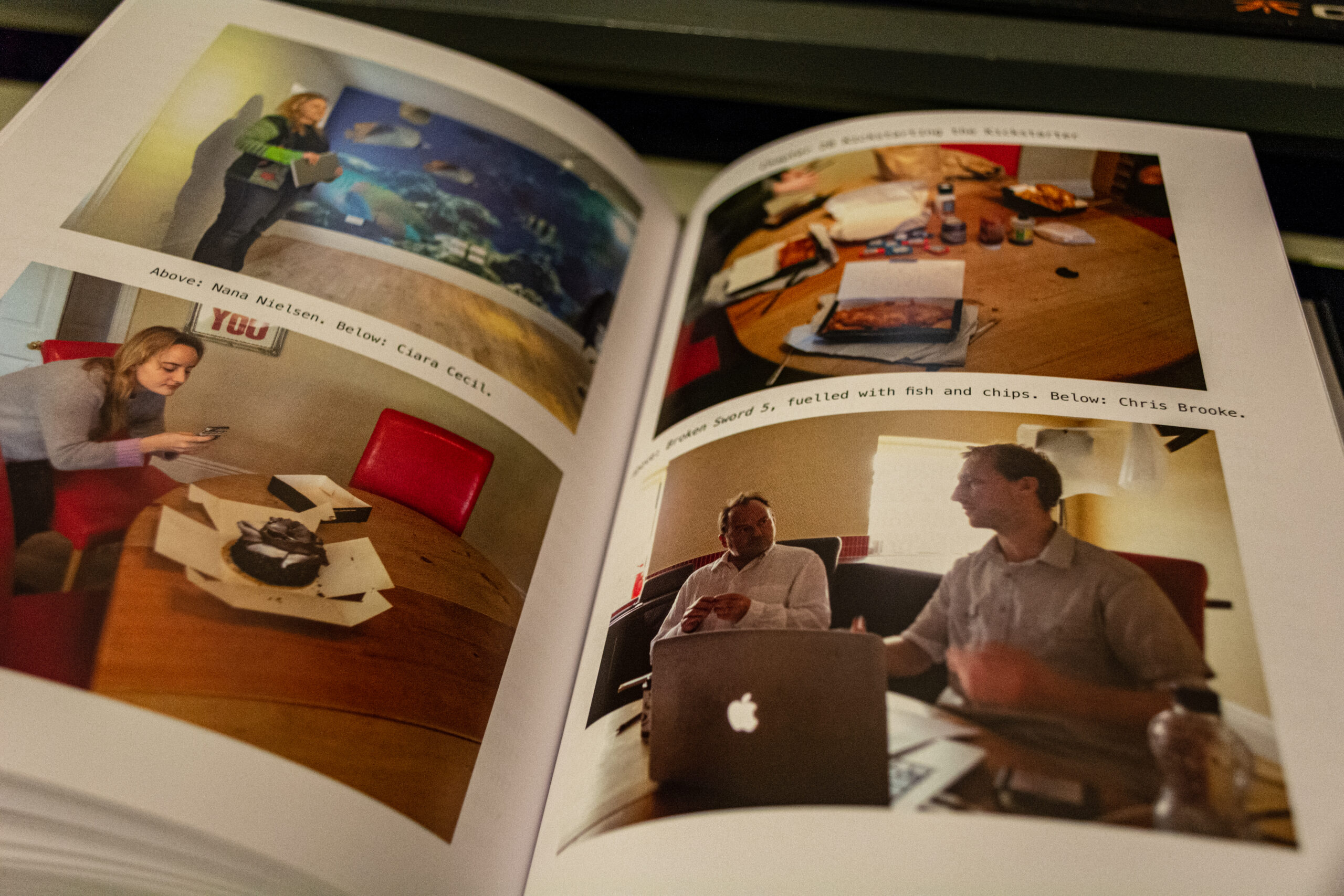
Whilst Revolution is described as “limited edition” and “100% unofficial”, Revolution also features a foreword by another of Revolution Software’s founders, Charles Cecil, in which Cecil praises both the book and Warriner himself, but also states that they remember a few things differently. To be clear, there is no bad blood or ill will between them.
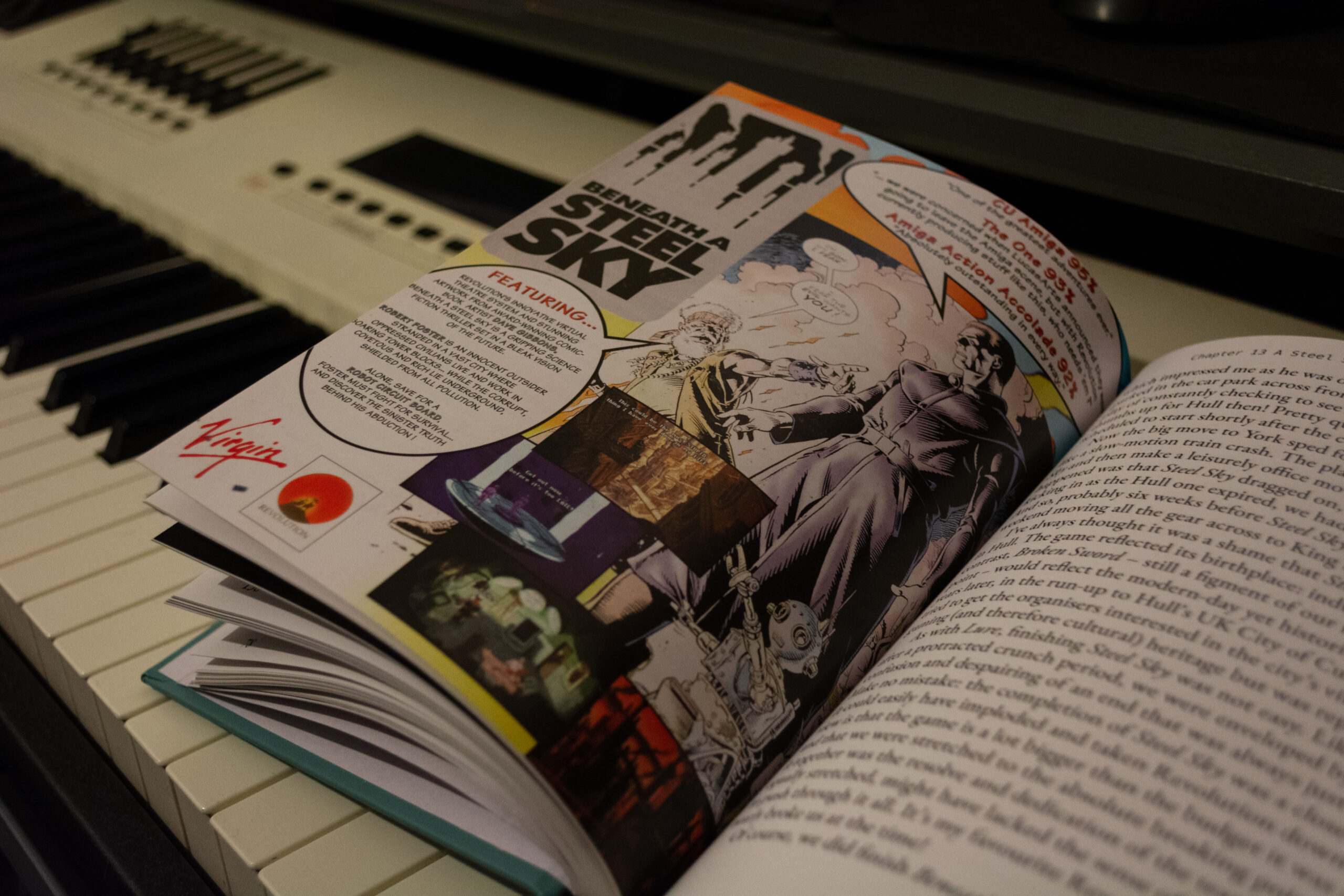
Revolution is a gorgeous 646-page book that deserves to be out on your coffee table and not hidden away on a shelf. It features beautiful, high-quality full-colour photographs and scans which bring the story to life. If you’re a game dev, you owe it to yourself to read it. Tony’s style of writing is instantly reminiscent of Revolution’s house-brand of narrative storytelling.

Revolution is a very important book, not just for fans of Revolution Software or their games, but for anybody who has or is building a career as an indie game developer. It’s worth a read-through just to understand how to avoid being chewed up and spat out by the video game publishing industry in terms of legal skulduggery. On a historical level, the context provided is superb.
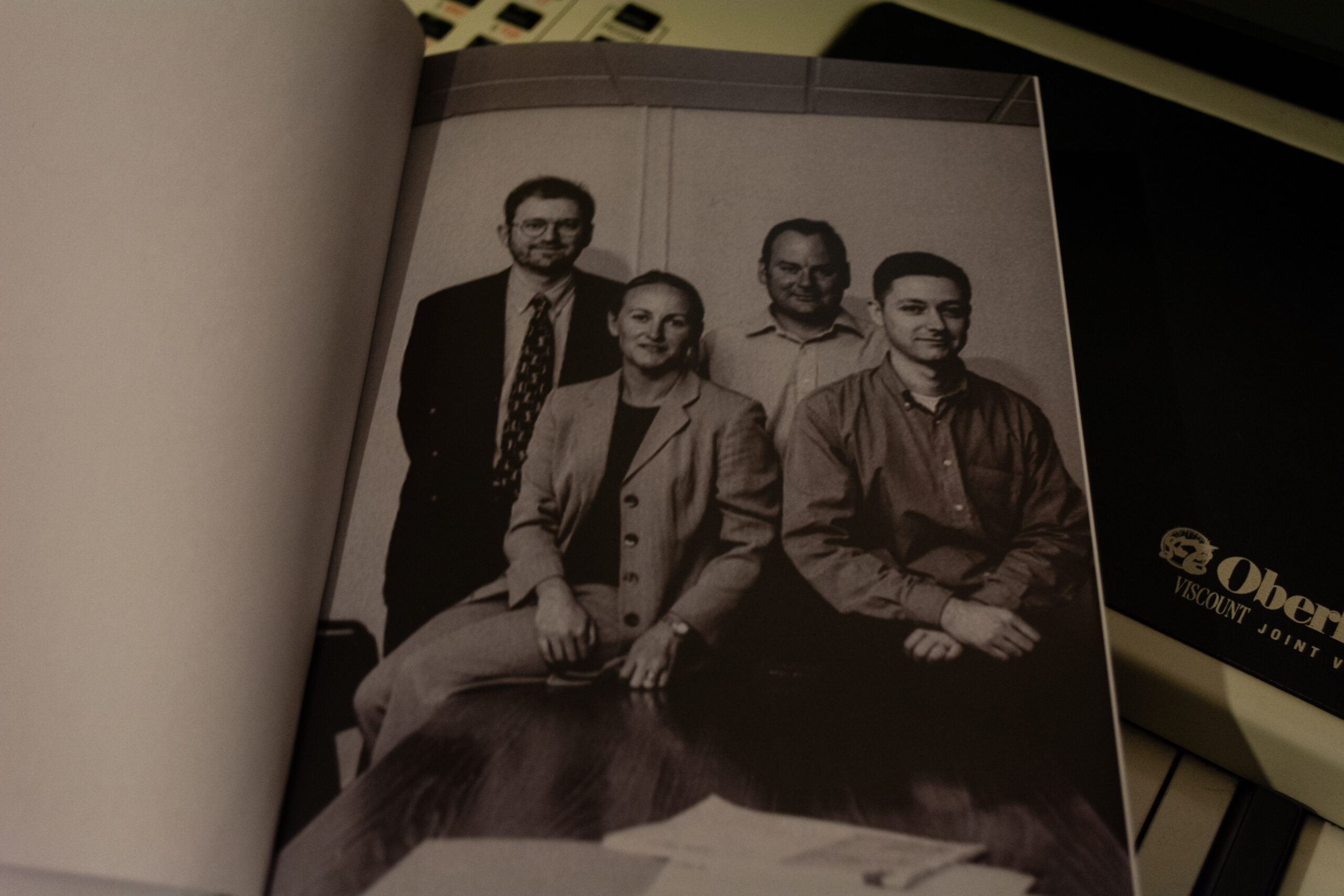
Revolution doesn’t begin with Revolution Software’s first game; it begins a good while beforehand, telling the story of Tony Warriner’s upbringing and background with programming. It’s a “corporate fuckery” cautionary tale, with a twist of Wilkins Micawber-like optimism that “something will turn up”. Warriner’s passion for video games as a creative medium shines through all of the hardest of times, and he never becomes jaded by the negative behaviour he encounters throughout his career. He’s spent his career making lemonade. For every crushing low, there’s many soaring and inspiring technical and creative highs.
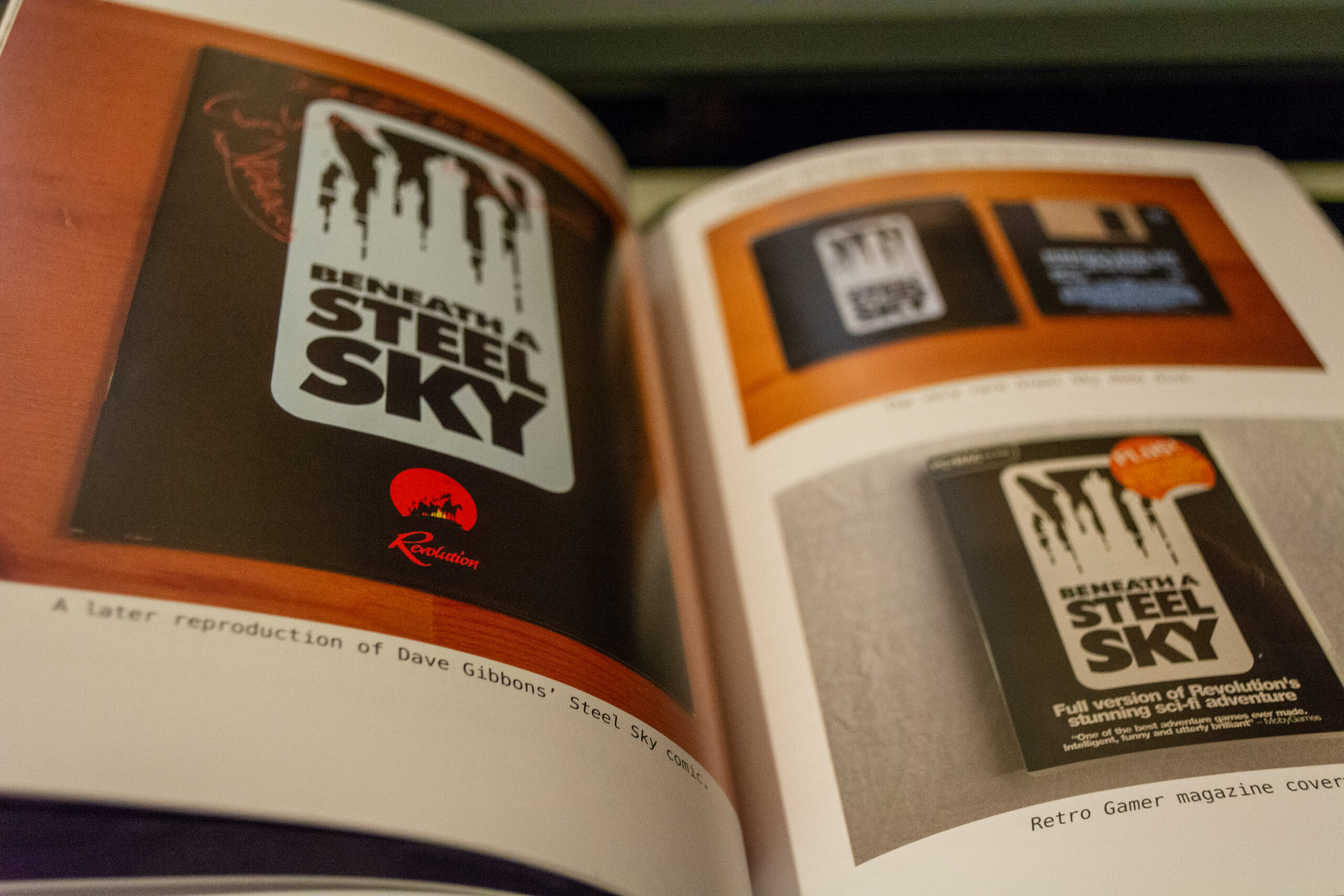
Revolution: The Quest for Game Development Greatness is everything that I wanted from Hideo Kojima’s The Creative Gene but didn’t get. Instead, Kojima presented a collection of essays about some of his favourite media, which whilst enjoyable and something I liked, wasn’t all that much about the process of making games, nor the gritty business side.
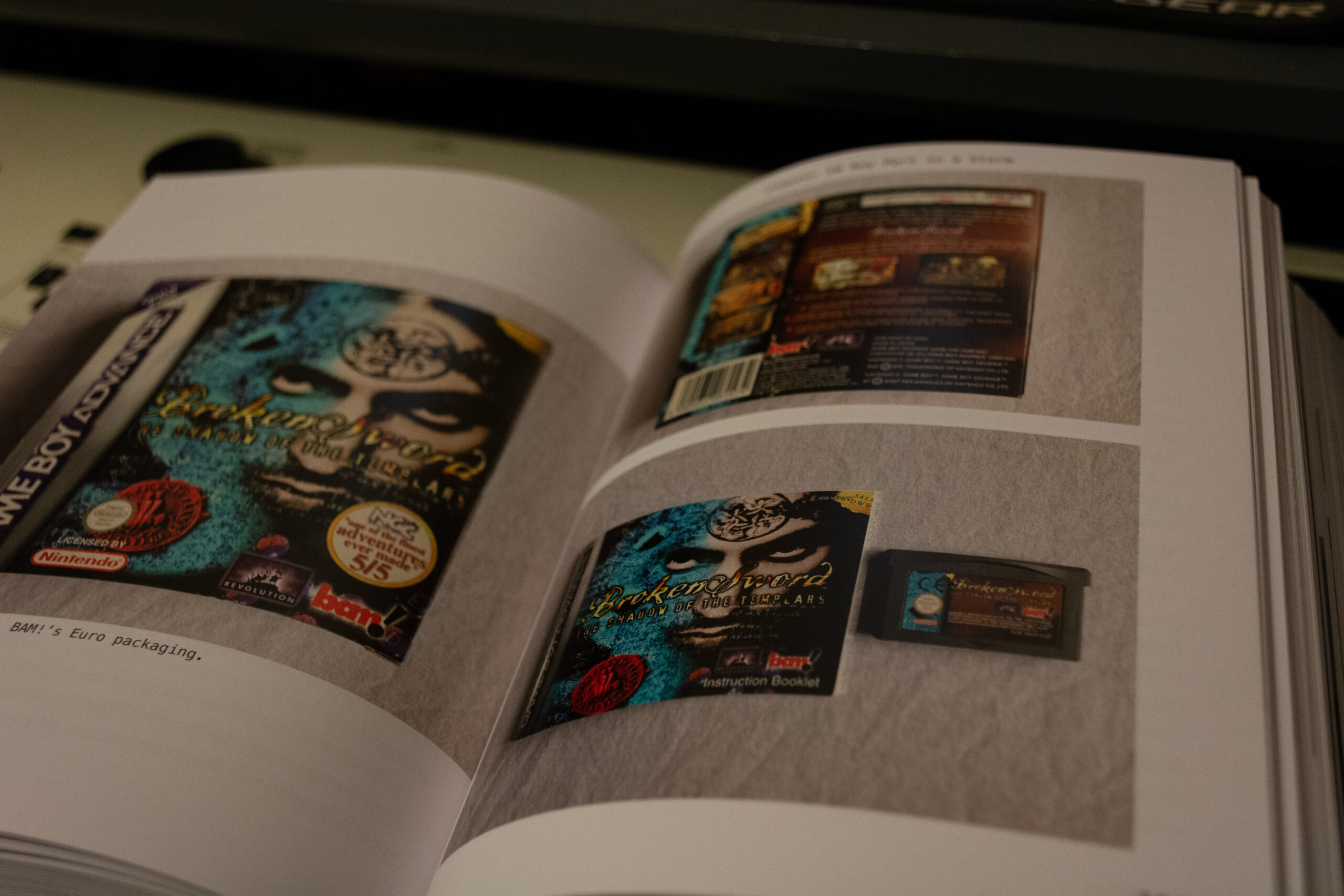
Instead of watering down game development for the average fan, its engine is hoisted high via crane by Warriner for all to examine. Unlike The Creative Gene, Revolution is quite laser-focused on video games and the making them. What fascinated me was just how Warriner managed to fit Broken Sword onto an 8MB Game Boy Advance cartridge, and how it was also made to work on the Nintendo DS resistive touchscreen.
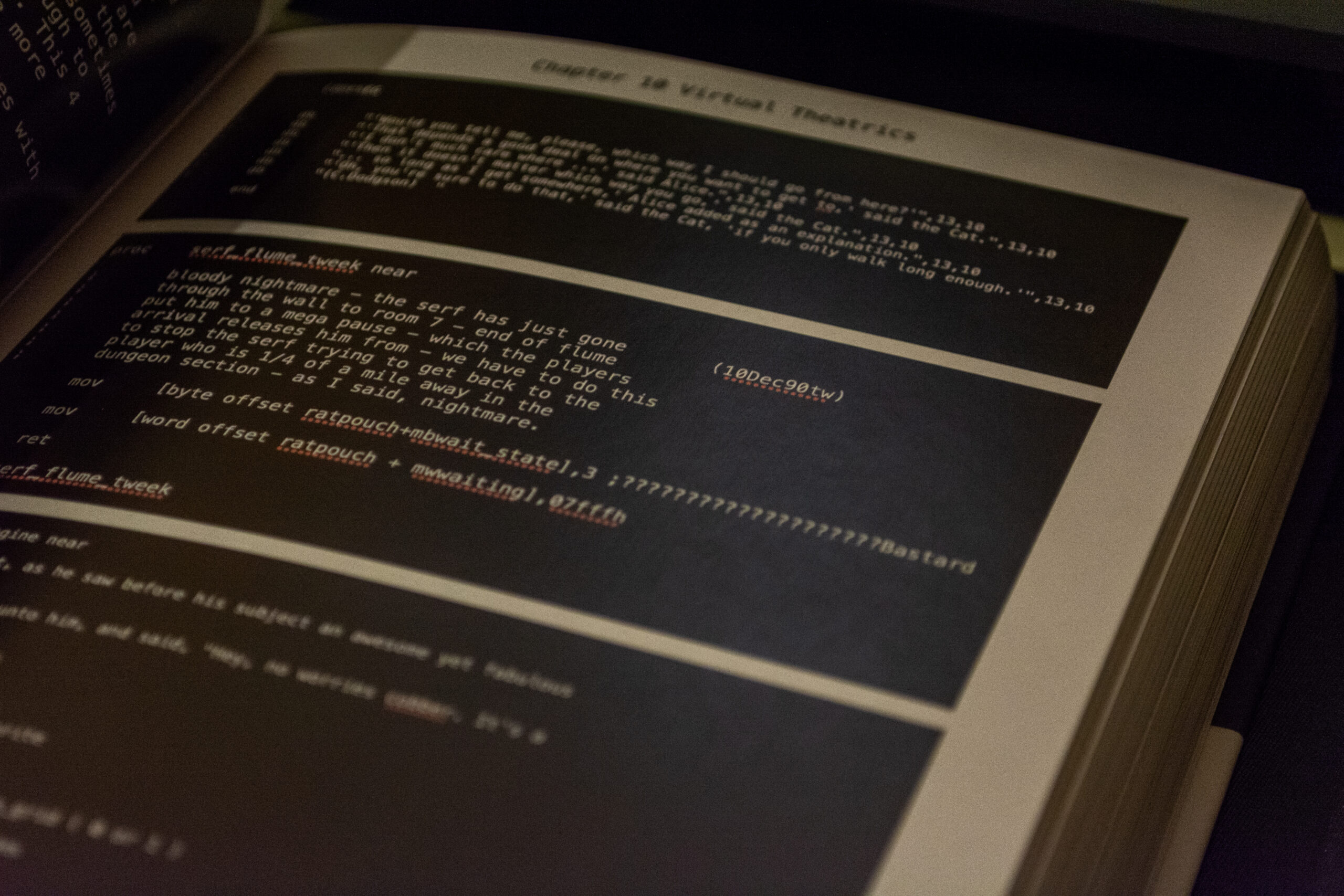
Warriner’s auto-router and Virtual Theatre engine are of particular interest, especially following Unity’s recent business model drama. Whilst the book was written before that, fascinatingly, Warriner mentions not to get taken in by the shiny convenience of modern-day engines and middleware, and instead focus on what actually makes your game great.
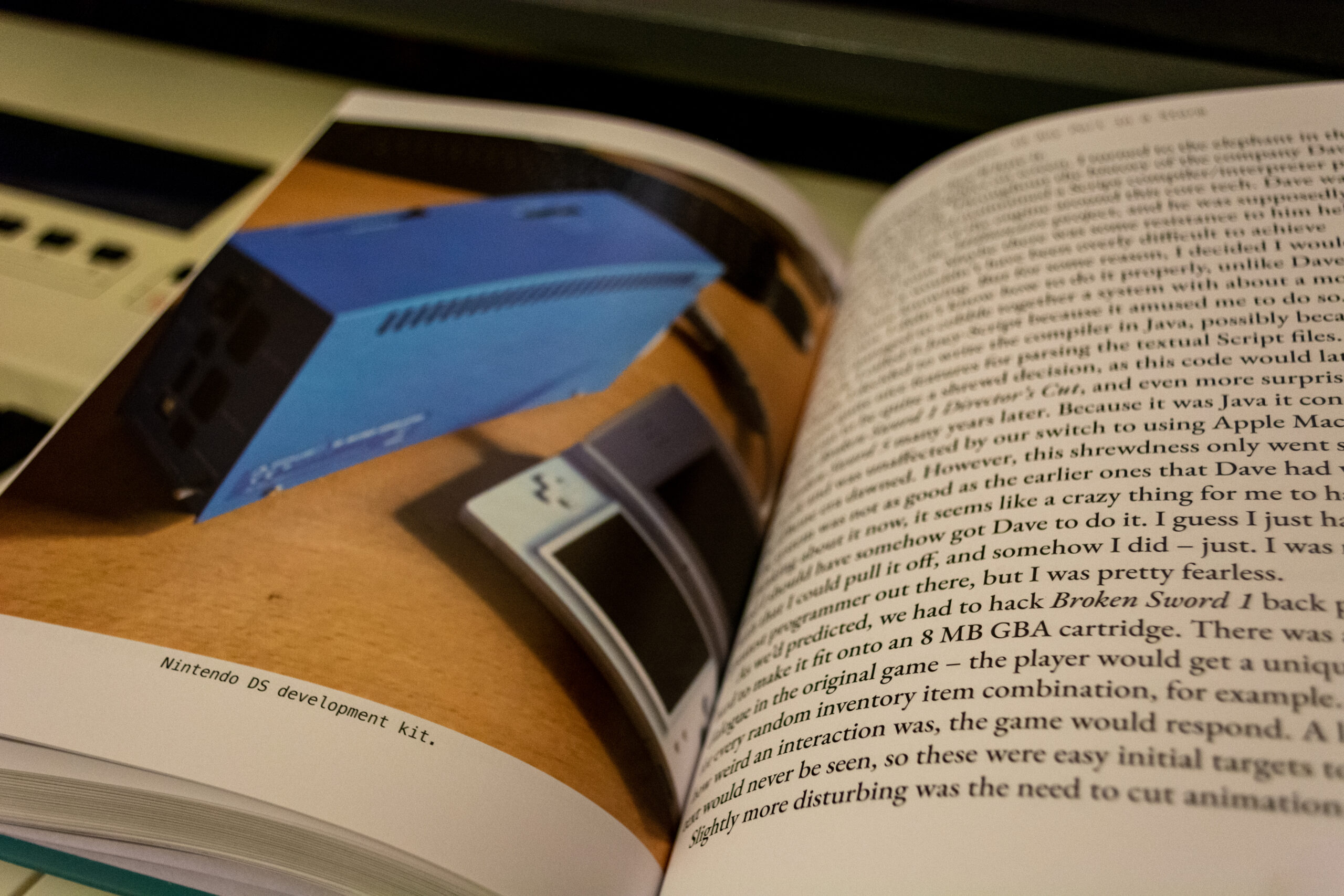
The book also mentions the Order of the Goat (OotG), which if you aren’t familiar with, is what the fans of Broken Sword call themselves, and if you identify as a member of the Order of the Goat, you’ll likely have your many burning questions answered by this book. How the internet brought people together for both work, funding, and general interaction is very interesting, especially with how it culminates in the eventual meeting of people in-person. Revolution offers great insight to what working pre-LAN and pre-WAN was like.
One of my favourite quotes from Revolution:
“I’m not very interested in what they call AAA: games produced by hundreds of people in vast tax-subsidised Canadian offices (or wherever). I can think of nothing worse. ‘Corporate Games’ is a better name for these products than AAA. If a game is produced by a company with public shareholders then you know what the real deal is: profits and dividends for the shareholders.”
– Tony Warriner
I already loved Revolution Software’s output, but I came away from it appreciating things that I didn’t know, such as the involvement of Dave Gibbons (Watchmen) across multiple titles. Equally, I’ve always described Broken Sword as being “like a Don Bluth animation come to life”. It turns out there’s a very good reason why I would think that, but you’ll just have to read Revolution to find out who and how, and live the second-hand trauma of Cambridge Animation Systems’ Animo running on NeXTSTEP. Revolution even made me want to track down a copy of Gold and Glory: The Road to El Dorado, a hidden gem for PC and the original PlayStation, which Warriner worked on at Revolution.
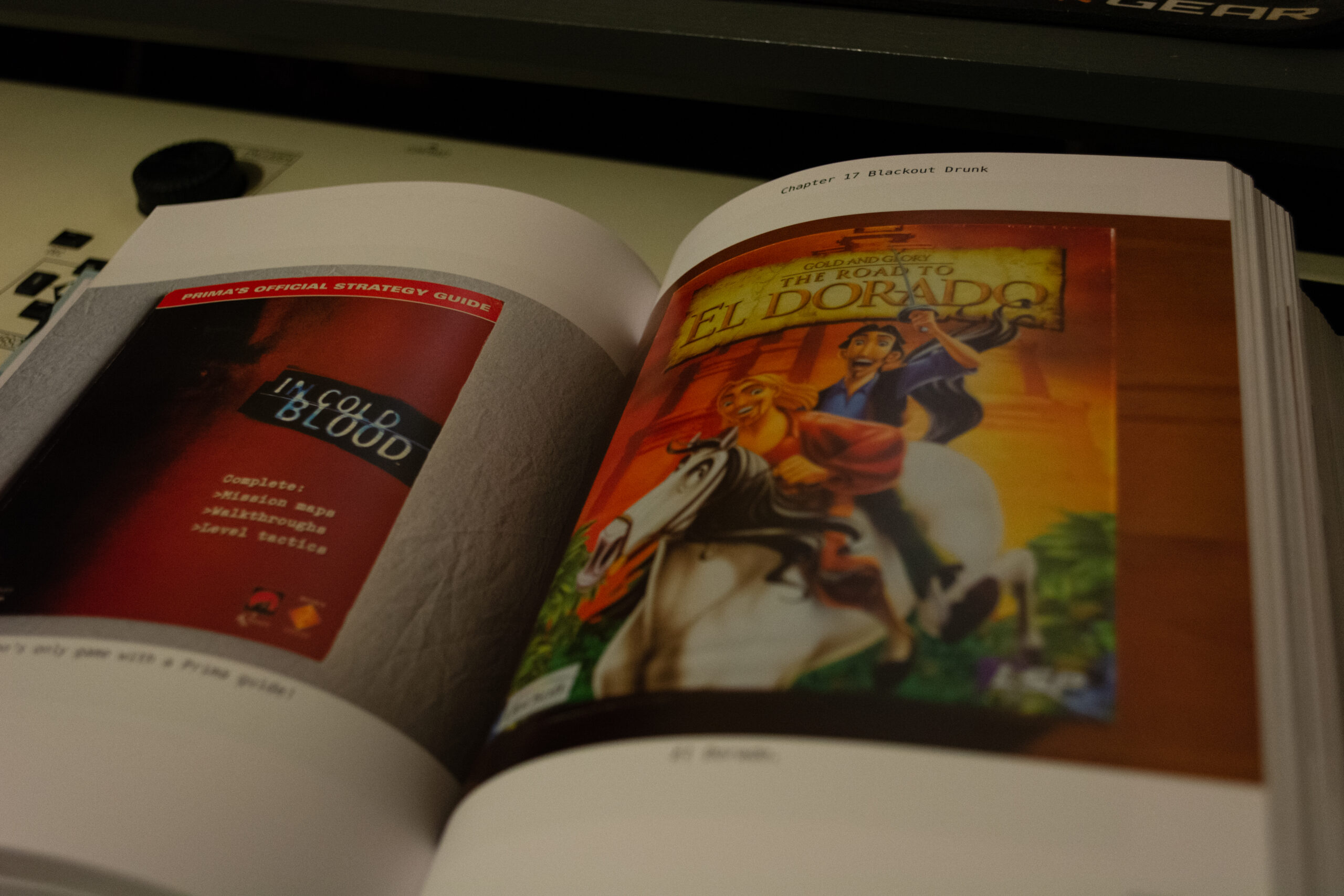
This is a book with teeth. Whilst reading through, I told my partner “This guy has to have ADHD, I’ve never felt so represented in a book before”, and sure enough, Warriner says in a later chapter that he suspects he has ADHD. Neurodivergents galore in game dev.
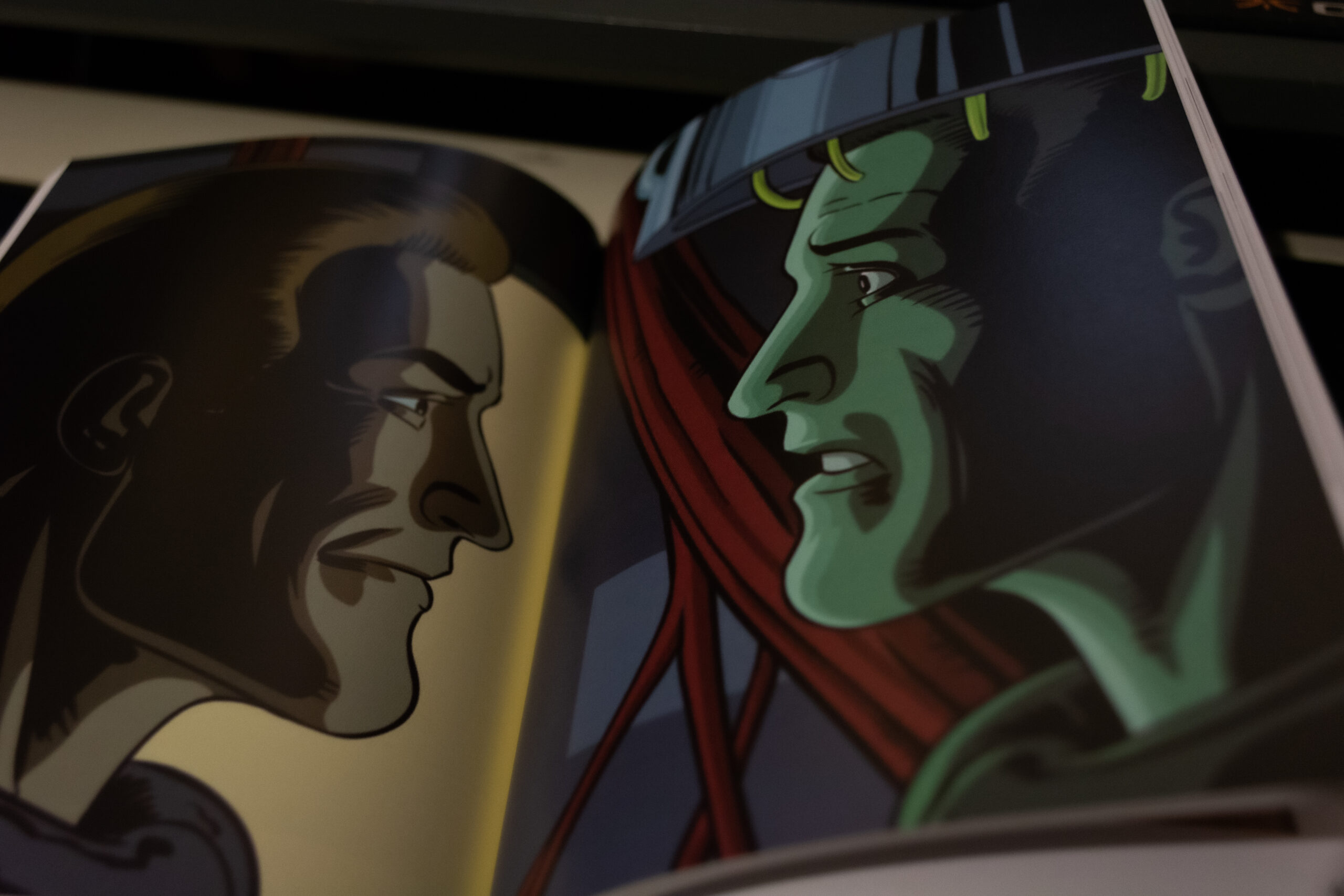
https://twitter.com/tonywarriner/status/1711133310871552360?t=VzrVRaof5TNrffIYJVjCug&s=19
It’s been nice to wrap up reading the final pages of Revolution just as Revolution Software announces Broken Sword – Parzival’s Stone and Broken Sword – Shadow of the Templars: Reforged. Warriner mentions that he intends to do a sequel to his first game, Obsidian (1986), and as of the time of writing, he has begun showing off his work-in-progress on Twitter/X. It’s just as well, because upon finishing the book, you’re left wanting to know what has happened since, and ultimately, what is going to happen next for him.
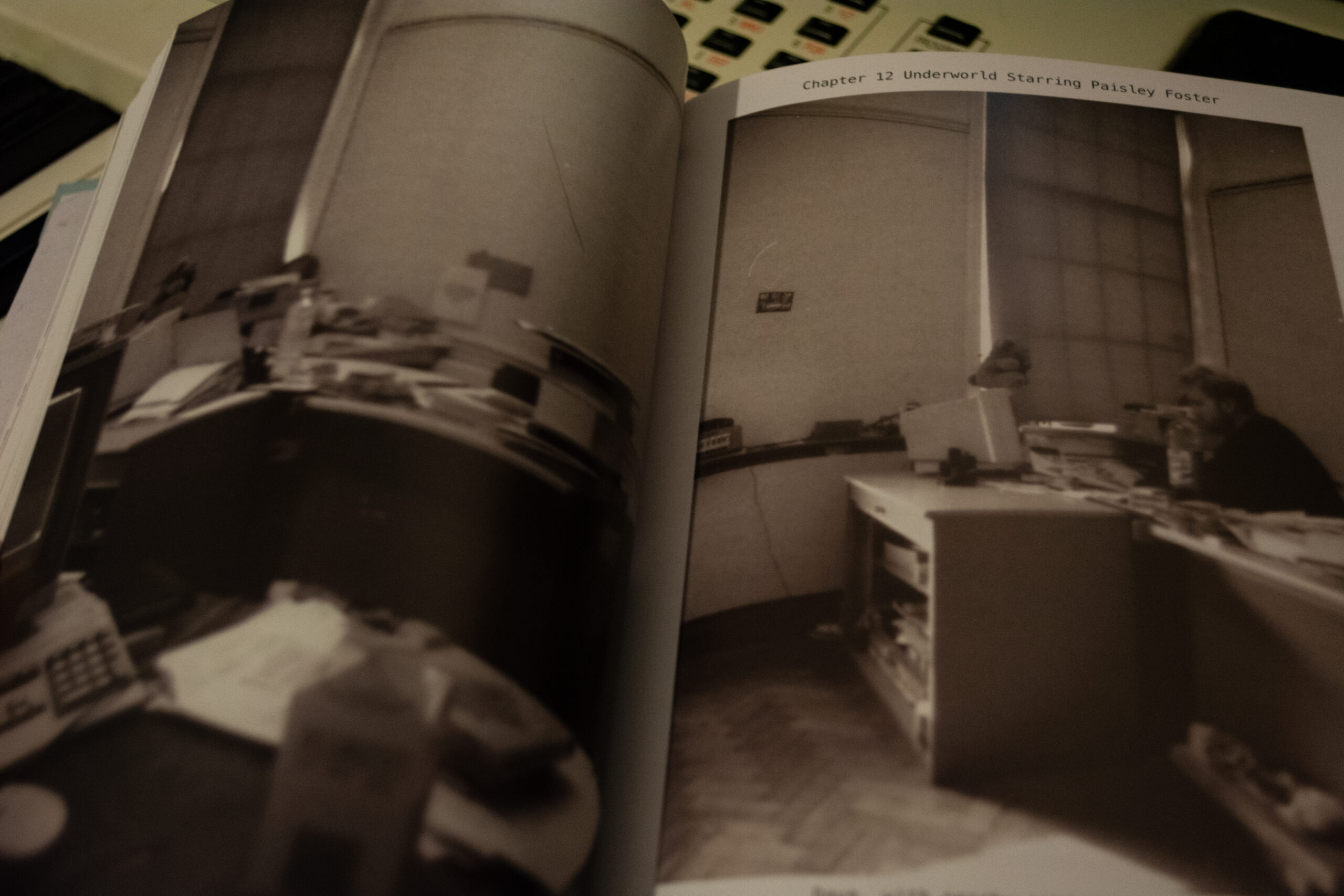
The reality of making games is a tough one for a lot of people to reconcile, but Revolution is an appreciably honest portrayal—a refreshing transparency that more game devs should try to show others. There’s a moment in the book, which immediately comes to mind when I talk about this, where Warriner recalls giving advice to a visiting school trip—even if it made the teachers uncomfortable to hear—that aspiring devs should focus on building skills and creating, whilst worrying less about passing exams.
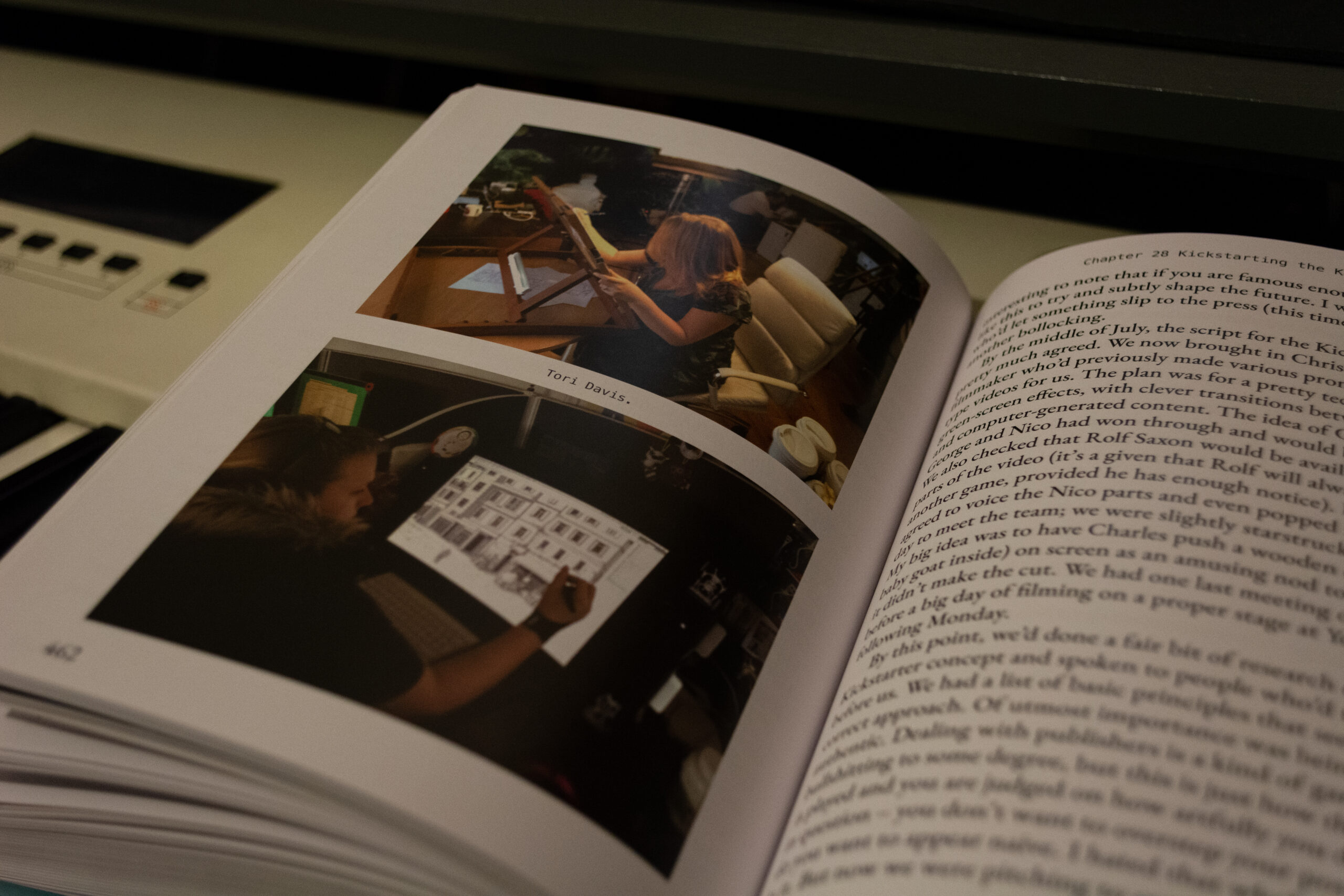
Revolution: The Quest for Game Development Greatness is a highly satisfying non-fiction page-turner. I’ve been recommending Revolution to every indie dev I know, and whilst this was initially going to be a couple of posts on Twitter/X in reply to Tony, I felt like the signal-to-noise ratio of a proper article would be much better. Perhaps the book inspired me to just stop-overthinking and put my thoughts out into the world again. The irony of this review ending up like a piece from The Creative Gene is not lost on me.
A good autobiography or historical book tells you how someone or something changed the world, but the great ones are when you as a reader come away having been changed for the better by the story too. In an era of fairly throwaway clickbait content, books like Revolution highlight why the book as a medium for storytelling isn’t dead.
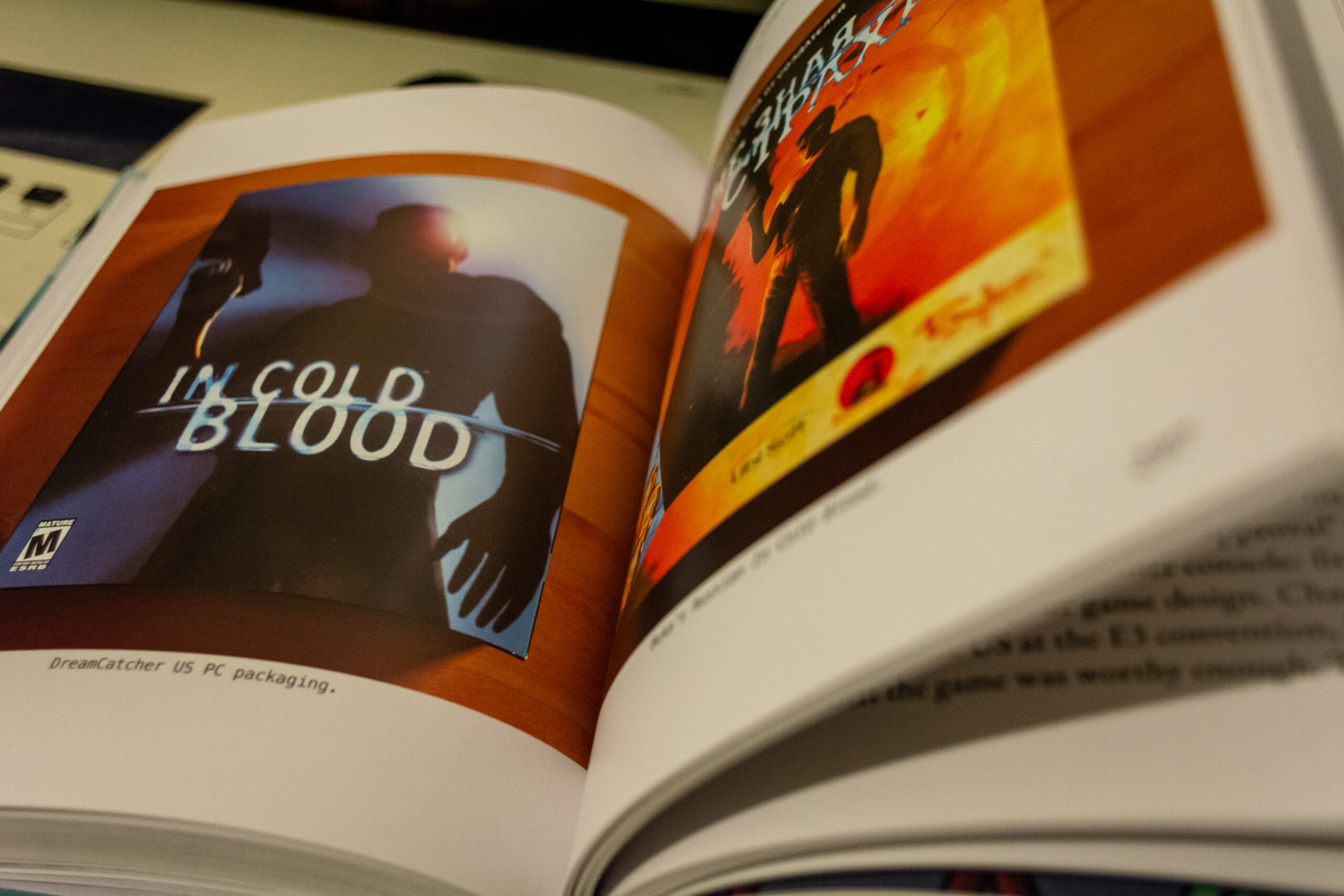
The only aspect where I could perhaps find fault with Revolution is that it could have done with another proofread—nothing awful—mostly missing commas that would make it an easier read, but nothing that would spoil your enjoyment of what is otherwise one of the best books about video games to be published thus far. Eloquent, funny, poignant; it’s definitely got the charisma and charm of a Broken Sword game with plenty of wonderful English turns of phrase that folks elsewhere might not understand off the bat, but if you can wrap your head around C++, you can probably understand “a proper bollocking” and “rankled them”. I also appreciated Tony’s contagious enthusiasm for details about cars throughout—it’s nice to see petrolheads having fun in places you don’t expect to find them.
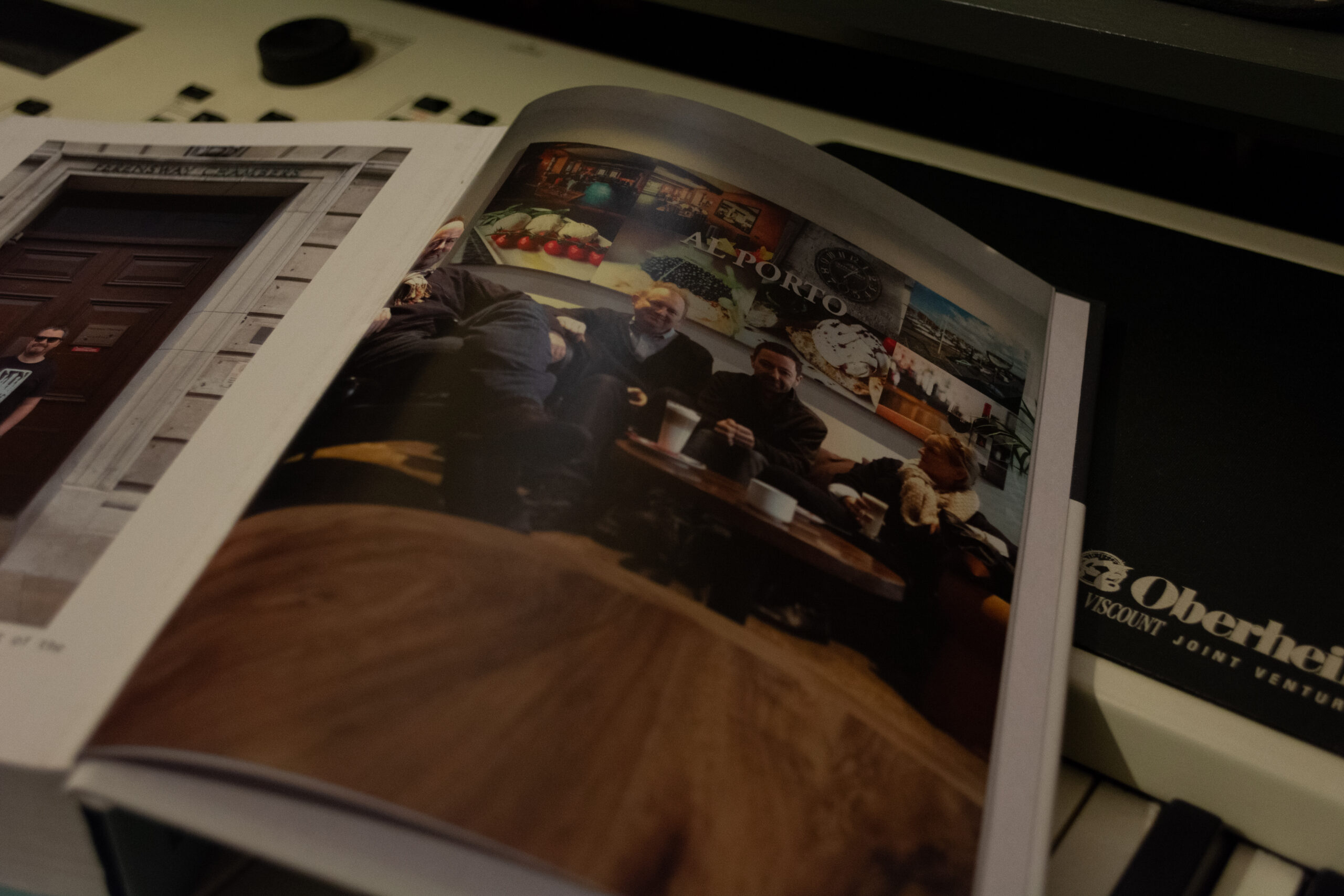
I would love to see Tony and his editor do another book together. They definitely seem to be a winning combination, and I would adore a reimagined mobile port of In Cold Blood—Charles Cecil, make that happen! I’ll be a day one buyer.
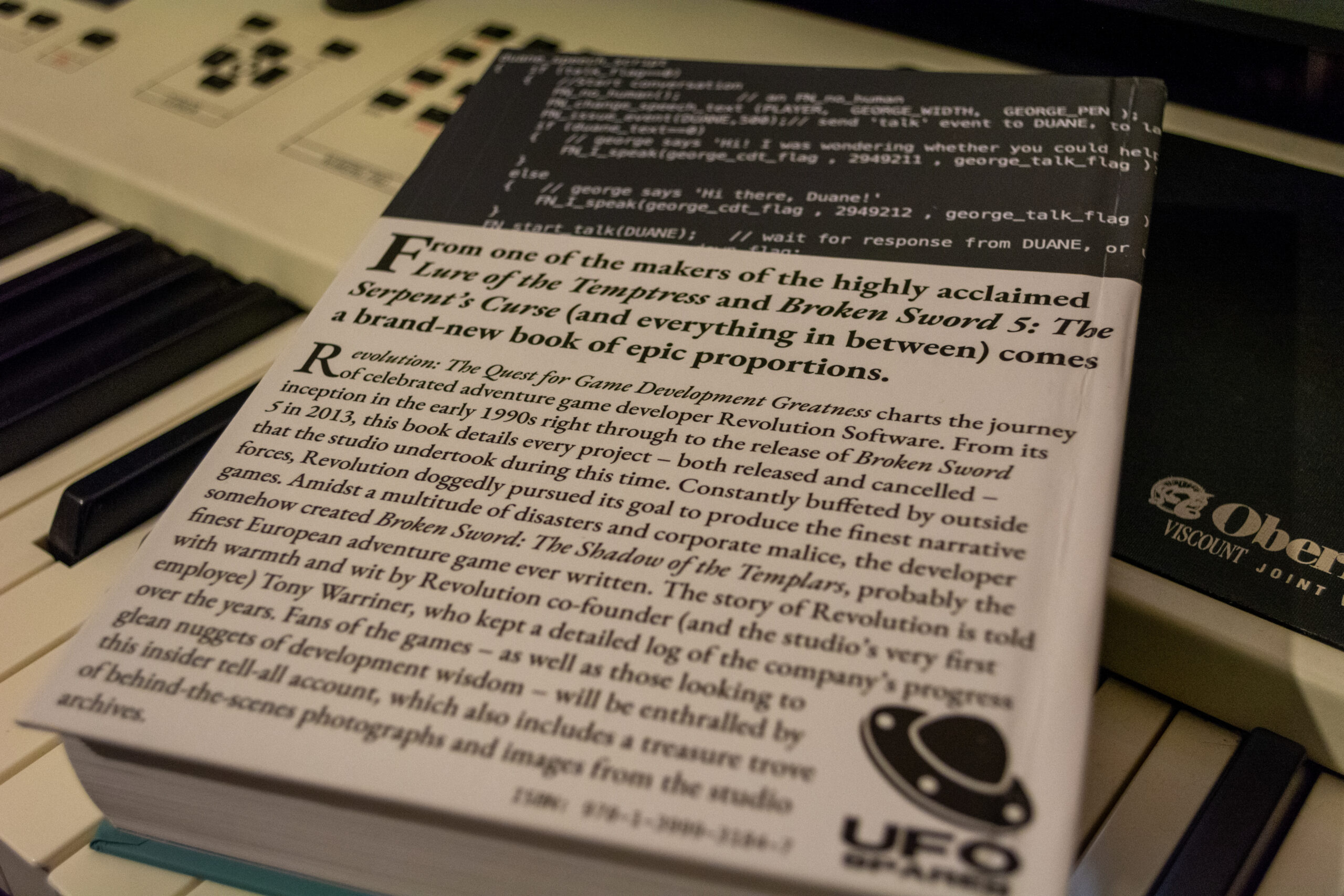
The hardback version of the book also comes with a digital version, which means you could even get started reading right now whilst waiting for your order to ship. Shipping was fast and took less than 48 hours. You can buy your own copy of Revolution: The Quest for Game Development Greatness from Tony Warriner’s Gumroad.
Image Credits: Hammy Havoc




Like this article? Share with your friends!